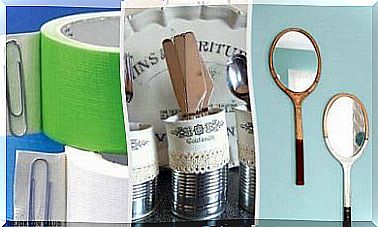Epistaxis: Causes And Remedies

You are probably familiar with the problem of nosebleeds : it has probably happened to someone close to you or even to you more than once. But do you know why this is happening? Why is blood running from the nose and how to deal with it? In a moment you will find the answer to these bothering questions.
Why is blood running from the nose?
There is really nothing to worry about, as in most cases there is no serious condition behind the nose bleed. It happens to both adults and children. The blood vessels inside the nose are very small and delicate; they are therefore very susceptible to changes in temperature, for example .
The air that enters your nostrils can dry out and irritate the tissues inside your nasal cavity, even leading to abrasions, scratches and cracks that can leak blood. As temperature is one of the main factors in the health of your nose, bleeding occurs especially in winter.
Most often, bleeding occurs as a result of irritation of the front part of the nasal septum. Much less common causes are damage to the depths of the nose, and if they do occur, they are more difficult to control. However, it is not worth panicking anyway, because neither of them is particularly dangerous to your health and life. So what causes them?
- Irritation related to allergies or colds
- Very cold or dry air
- Blowing your nose too much or picking your nose
- Minor damage or a distorted nasal septum
- Some chemical items
- Hypertension
- In the worst case, even tumors or neoplastic lesions
How can I cope with bleeding?
Above all , stay calm, especially in the presence of children. Remember that it is not worth panicking as bleeding can be dealt with quickly in most cases. For first aid to be effective, keep the following rules in mind:
- First, sit down and tilt your head forward. For what? To avoid swallowing or choking blood. The person whose blood is flying should breathe through the mouth.
- Then, gently pinch your nose between your thumb and forefinger to close the nasal cavity. After 2 minutes, let go and squeeze again to make sure the bleeding has stopped. You should continue to breathe through your mouth.
- Keep breathing through your mouth every 5 minutes to make sure that the bleeding has stopped.
- If the bleeding continues, you can apply a cold compress to the bridge of your nose for a few seconds to try to stop the bleeding.
- For control you can also use gas, but remember that the dressing should not fully cover the nose , and the amount of gas inserted into the nostrils can not completely block the nasal cavity.
- It is not recommended to lie down during bleeding, although this is a mistake often made by first-aiders. Lying down increases the risk of choking on blood. Therefore, the first step is to sit down with your head slightly tilted forward.
- To avoid re-bleeding, it’s best to breathe through your mouth and keep your nose on hold for the next few hours.
- If bleeding continues, consult your doctor. He may apply a decongestant spray to help close the blood vessels and stop any bleeding.

When should you see a doctor?
In case of nosebleeds, medical attention may be needed if:
- bleeding does not stop after 20 minutes
- bleeding is associated with a head injury,
- the nose is not only bleeding, it is visibly damaged: it may be broken.
A visit to the doctor is also necessary if you have bleeding regularly, even once a week or more often, and it is not related to external factors such as temperature changes.








